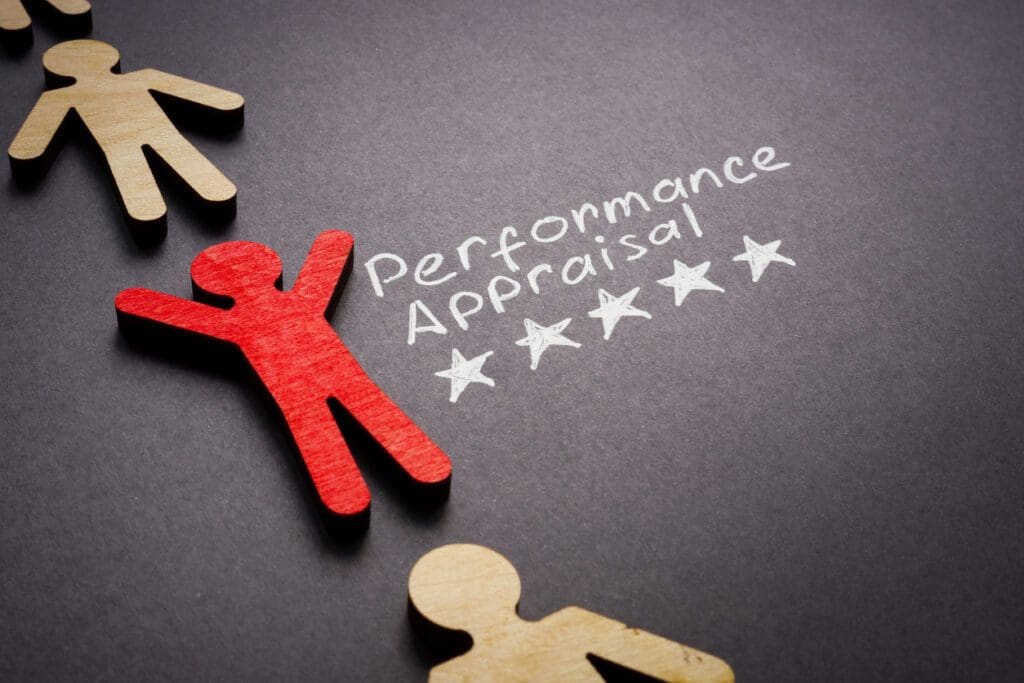Table of Contents
Benefits of Performance Appraisal for Organisational Success
In today’s competitive business landscape, organisations strive to enhance performance and achieve long-term success. The performance appraisal process is Central to this endeavour, a structured approach that evaluates employee performance identifies strengths and weaknesses, and fosters employee development.
This blog explores the many benefits of performance appraisal, highlighting how it can motivate employees, improve performance, and contribute to effective performance management.
What is Performance Appraisal?
Performance Appraisal, also known as performance evaluation or performance review, is a systematic process organisations use to assess and evaluate their employees’ job performance.
It involves gathering and analysing information about an employee’s performance in relation to established goals, job expectations, and competency standards. Performance appraisal typically involves feedback, assessment, and documentation of an employee’s strengths, weaknesses, accomplishments, and areas for improvement.
Types of Performance Appraisal
There are several performance appraisal methods organisations use to evaluate employee performance. Here are some commonly used types:
- Rating Scales: This method uses a predefined set of performance dimensions or criteria and rating scales to assess employee performance.
- Behavioural Observation Scales (BOS): BOS focuses on observable behaviours that are critical to job success. Supervisors or observers evaluate employees’ performance based on specific behavioural indicators, providing a more objective assessment.
- Critical Incident Technique: In this method, supervisors record significant employee performance incidents throughout the appraisal period.
- 360-Degree Feedback: As mentioned earlier, 360-degree feedback involves gathering feedback from multiple sources, including supervisors, peers, subordinates, and customers.
- Management by Objectives (MBO): MBO is a performance appraisal method that focuses on setting specific, measurable, achievable, relevant, and time-bound (SMART) objectives for employees.
- Self-Assessment: Self-assessment involves employees reflecting on their own performance, strengths, weaknesses, and areas for improvement. They provide a self-evaluation of their performance, which is then used as a basis for discussion during the appraisal process.
- Comparative Evaluation: Comparative evaluation compares one employee’s performance to that of another employee or a group of employees. This method involves ranking employees based on their performance levels.
It’s important to note that organisations may combine these methods or customise them to suit their specific needs and organisational culture. The choice of the performance appraisal method depends on factors such as the nature of the job, organisational goals, available resources, and the desired level of objectivity and feedback.
Benefits of Performance Appraisal for the Organizations
Improved Organizational Performance
Performance appraisals enable organisations to assess the performance of their employees against set goals and objectives. By identifying areas of strength and weakness, organisations can make informed decisions to enhance overall performance and productivity.
Enhanced Decision-Making
Performance appraisals provide valuable data and insights that help managers and leaders make informed decisions regarding promotions, rewards, training, and development initiatives. This ensures that resources are allocated effectively and aligned with organisational priorities.
Targeted Training and Development
Performance appraisals help organisations identify skill gaps and development needs among employees. This information enables the design and implementation of targeted training programs to enhance employee skills, knowledge, and abilities, leading to a more 4. competent workforce.
Succession Planning
Performance appraisals play a vital role in succession planning by identifying high-potential employees for future leadership positions. Organisations can groom and develop these individuals to ensure a smooth transition when key positions become vacant.
Employee Engagement and Retention
Regular performance appraisals demonstrate to employees that their contributions are recognised and valued. This promotes higher engagement, job satisfaction, and loyalty, increasing employee retention rates and reducing turnover costs.
Alignment of Individual and Organizational Goals
Performance appraisals facilitate the alignment of individual goals with broader organisational objectives. When employees understand how their work contributes to the overall success of the organisation, they are more likely to work towards achieving those goals.
Clear Communication and Feedback
Performance appraisals provide a structured platform for managers and employees to communicate openly and constructively. Regular feedback sessions enable discussions about performance, expectations, and areas for improvement, fostering a culture of transparency and trust.
Data for Performance Analysis
Performance appraisals generate valuable data and metrics that organisations can use for performance analysis and evaluation. This data helps in identifying trends, patterns, and areas requiring intervention or improvement, facilitating evidence-based decision-making.
Legal and Ethical Compliance
Performance appraisals ensure organisations fulfil legal and ethical obligations for fair and unbiased evaluations. Transparent and well-documented performance appraisal processes can help protect organisations from potential legal disputes and promote a culture of fairness and equality.
Benefits of Performance Appraisal for Employees
Performance appraisal offers several benefits to employees. Here are some key advantages:
Clear Expectations
Performance appraisal provides employees with a clear understanding of their job expectations, performance standards, and goals. This clarity helps employees align their efforts with organisational objectives and enhances job satisfaction.
Motivating Employees through Performance Appraisal
One of the key benefits of performance appraisal is its ability to motivate employees. By providing regular feedback and recognition, performance appraisals inspire individuals to perform at their best. When employees receive acknowledgement for their accomplishments, it reinforces their sense of worth and boosts morale.


Promoting Employee Development
Performance appraisals catalyse employee development. By providing feedback and setting goals, organisations can help employees improve their performance and reach their full potential. In addition, goal-setting and development plans created during performance appraisals establish a roadmap for employees’ future development, ensuring a continuous learning culture within the organisation.
Career Advancement
Performance appraisal serves as a platform for discussing career aspirations and growth opportunities. It allows employees to express their ambitions, receive guidance from managers, and identify potential career paths within the organisation. By demonstrating their performance and development potential, employees increase their chances of being considered for promotions and advancement.
Increased Job Satisfaction
When employees receive regular feedback, recognition, and opportunities for growth, their job satisfaction levels tend to increase. Performance appraisal provides a structured approach for addressing employee concerns, offering support, and creating a positive work environment, contributing to higher job satisfaction.
Improved Communication and Relationships
Performance appraisal facilitates open communication between employees and their managers. Employees can express their views, share concerns, and receive guidance from their managers through performance discussions. This open dialogue helps build trust, strengthens working relationships, and fosters a collaborative work environment.
Goal Clarity and Alignment
Performance appraisal ensures employees understand their goals and how they contribute to the broader organisational objectives. This alignment allows employees to focus their efforts, prioritise tasks, and work towards shared goals, increasing their sense of purpose and engagement.
Fair Evaluation
Performance appraisal, when conducted objectively and based on predefined criteria, provides employees with a fair assessment of their performance. This fairness contributes to employees’ perceptions of equity and helps build a culture of trust and transparency.
Personal Growth and Job Security
Through performance appraisal, employees receive guidance on improving their performance, enhancing their skills, and meeting job expectations. This professional development enhances job performance and increases job security by equipping them with the skills needed to adapt to changing organisational needs.
Engaging Employees for the Long Term
Engaged employees are the lifeblood of any successful organisation. Performance appraisals contribute significantly to employee engagement by fostering open communication channels and meaningful interactions between managers and employees. When employees feel heard and supported, they become more engaged, committed, and invested in the organisation’s long-term success.
Conclusion
Performance appraisal is a powerful tool that brings numerous benefits to both employees and organisations. Organisations can unlock their employees’ full potential and drive organisational success by effectively evaluating employee performance, identifying strengths and weaknesses, and promoting employee development.
The performance appraisal process is a cornerstone for fostering a culture of continuous improvement, employee engagement, and long-term growth. By embracing the benefits of performance appraisal, organisations can create a thriving work environment where employees perform at their best and contribute to achieving organisational goals.



